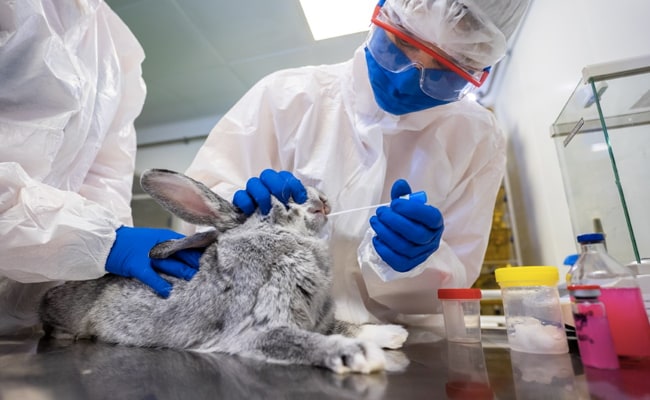
The coronavirus is not only affecting humans but animals too. Cases of wild and pet animals contracting the virus have increased since last year. Russia announced the world’s first animal-specific vaccine. This is everything you need to know all about the covid vaccine for animals.
Russia announced that it had registered the world’s first animal-specif vaccination. Several regions have now started vaccination for animals at veterinary clinics, said Rosselkhoznadzor, The Federal Service for Veterinary and Phytosanitary Surveillance to the local news.
Several other countries including Japan, South Korea, Argentina, and European Union, have shown interest in the Carnivak-Cov vaccine. However, scientists are not sure that animals play a vital role in spreading the disease to humans.
COVID-19 has specifically been a grave problem for dairy animals and mink semi-aquatic mammals that are farmed for their fur. Several animals were found dead or severely ill. A gigantic mink outbreak occurred in Denmark and lead to the shutdown of the company until the end of 2022. They ended up having to cull all the mink, and that was over 17 million animals!
Does your pet need a COVID-19 vaccine?

The Carnivak-Cov vaccine has an estimation of six-month-long period of immunity. “Clinics were seeing an increase in vaccination requests from breeders, pet owners who travel frequently, and also citizens whose animals roam freely,” said Julia Melano, the advisor to the head of Rosselkhoznadzor. Zoetis, a US veterinary pharmaceutical company is developing another vaccine for animals.
The ‘Cluster 5’ COVID-19 mutation
Covid-19 originally came from wild animals and then transmitted to humans. Soon farm animals caught the virus and then back to humans. Several mutations of the virus have since been discovered. In Denmark, over 200 people contracted the cluster 5 mink-related coronavirus.
The COVID-19 vaccine for animals is a novel step towards vaccination and control measures. This will ensure that the virus does not spread between animals or from animals to humans.
